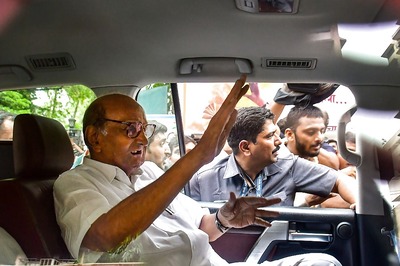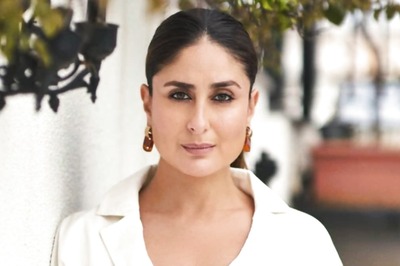
views
Greater Noida: With volatile oil prices in the past playing havoc on economies of importing nations like India, Prime Minister Narendra Modi Monday made a strong case for a responsible pricing of crude oil that balances interests of both producers and consumers, saying people must have universal assess to clean, affordable and equitable supply of energy.
Speaking at the Petrotech 2019 conference here, he said the world for long has seen crude prices on a roller-coaster.
For a nation dependent on imports to meet more than 80 per cent of its oil needs and half of its gas requirements, the volatility last October jacked up retail petrol and diesel prices to record highs. The same has led to natural gas not being used as a fuel in power plants despite it having an enormous environmental advantage over polluting coal and liquid fuels.
"We need to move to responsible pricing, which balances the interests of both the producer and consumer," he said. "We also need to move towards transparent and flexible markets for both oil and gas. Only then can we serve the energy needs of humanity in an optimal manner."
Modi said the challenge before nations is to deliver affordable, efficient, clean and assured energy supplies to their citizens.
"Suitably priced, stable and sustainable energy supply, is essential for rapid growth of the economy," he said, adding that "it also helps the poor and deprived sections of society to partake of economic benefits."
Oil and gas are not only a commodity of trade but also of necessity -- whether it is for the kitchen of a common man or for an aircraft, energy is essential, he said.
The Prime Minister said India is the fastest-growing large economy in the world and a recent report has estimated that it could be the second largest world economy by 2030 (rpt) 2030.
At present, India is the sixth-largest economy in the world and is the third-largest energy consumer in the world, with demand growing at more than five per cent annually.
"India remains an attractive market for energy companies with energy demand expected to more than double by 2040," he said.
Stating that the energy sector is a pivot and key enabler of growth, he said energy supply, sources and consumption patterns are changing. "Perhaps, this could be a historic transition," he said.
"There is a shift in energy consumption from west to east. The United States has become the world's largest oil and gas producer after the shale revolution. Solar energy and other renewable sources of energy have become more competitive. They are emerging as sustainable substitutes for traditional energy forms. Natural Gas is fast becoming one of the largest fuels in the global energy mix.
"There are signs of convergence, between cheaper renewable energy, technologies, and digital applications. This may expedite the achievement of many sustainable development goals," he said.
While the world is entering an era of greater energy availability, more than a billion people across the globe still do not have access to electricity and many more do do not have access to clean cooking fuel.
"People must have universal access to clean, affordable, sustainable and equitable supply of energy," he said.
Listing out his government's achievements in the energy sector, he said electricity has reached all our rural areas and the target of 100 per cent electrification of households will be achieved this year.
While electricity generation has been raised, the effort is on to cut transmission and distribution losses. India's World Bank Ease of Getting Electricity Ranking improved from 111 in 2014 to 29 in 2018.
"LED bulbs distributed across the country under the UJALA scheme, have resulted in an annual saving of Rs 17,000 crore," he said adding more than 6.4 crore free LPG connections to poor have helped expand the coverage of cooking gas to over 90 per cent of the population from 55 per cent five years ago.
Modi said major reforms in oil and gas sector have been unleashed in last five years.
While upstream oil and gas exploration and production policies and regulations have revamped, gas pricing reforms have been introduced and incentives offered for use of enhanced oil recovery techniques to raise domestic output.
In the downstream sector, petrol and diesel prices have been freed from government control and the deregulated refining sector has catapult India to being the fourth largest refining capacity in the world. "This will further grow by about 200 million metric tonnes by 2030," he said.
Also, the government is aggressively pushing for use of biofuels with 12 second-generation bio-refineries in the processing of being set up in 11 states.
"Our government has encouraged private participation across the entire oil and gas value chain. India is becoming an attractive FDI destination. Companies like Saudi Aramco, ADNOC, TOTAL, Exxon-Mobil, BP and Shell are looking to increase their investments across the value chain," he said adding that gas infrastructure is being doubled to usher in a gas-based economy.




















Comments
0 comment